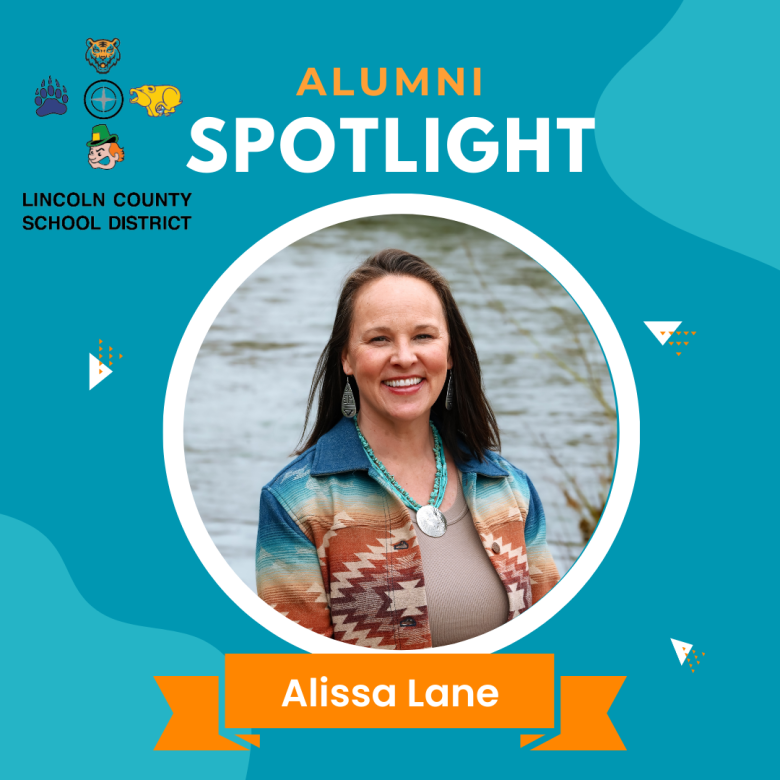In this Alumni Spotlight, we feature Toledo High School graduate Alissa Lane, whose educational journey led her to a fulfilling career serving her Tribal community and demonstrates the powerful impact of encouragement and support.
Educational Journey
Alissa graduated from Toledo High School in 1998, but her path to higher education wasn’t always clear. “I didn’t know exactly what I wanted to do for a career after graduation and I didn’t really know that I was going to college – that piece came with the encouragement of a teacher,” she explains. However, she notes, “I was always drawn to the healthcare field from a very young age and to making the lives of people better through whatever means.”
With support from her parents and her teacher, Alissa went directly from high school to Oregon State University. In 2002, she graduated with a Bachelor of Science degree in Public Health – Health Promotion & Education with a focus in Community Health.
Alissa proudly notes that she is a first-generation college graduate. “I was able to accomplish my degree with the encouragement from a kind high school teacher and the love and support from my parents, my brother and my Tribe. Together these individuals provided me with the tools necessary for me to be the professional I am today, so accept the encouragement you are given and the help that is offered.”
Professional Success
Today, Alissa is in her 22nd year of employment with the Confederated Tribes of Siletz Indians, where she serves as the Education & Cultural Programs Director. In this role, she oversees Head Start, Child Care Assistance, Education, Cultural Resources, Traditional Arts & Language, and Youth Services for the Tribe. “What I love most about my job is that I am working for my fellow Tribal members,” Alissa shares. “I have had the privilege of working in service for my Tribe for all of my working career.”
Making an Impact
Alissa’s typical day involves multiple meetings with local, state, and federal agency partners, interfacing with students and families, managing budgets, processing paperwork, boosting team morale, brainstorming new programming, and working on large Tribe-wide projects. Her position represents what she describes as “a wonderful blending of western and traditional ways of knowledge from Head Start through postsecondary education.”
“Every day I get to advocate for Siletz Tribal member rights, resources, and our sovereignty,” she explains. “Education, both Western and Traditional ways of knowing, is so important to our people – it represents a certain kind of freedom and unlocks many wonderful opportunities.”
Alissa emphasizes the importance of creating educational environments that support American Indian students: “A school environment should be one that nurtures and supports being an American Indian, teaches the accurate history of the United States, and honors the land (and the people) that schools are on.”
Advice for Students
Alissa offers powerful advice to current high school students. “Change the way you look at school – it’s not something you’re doing for others, it’s a complete investment in yourself.”
She encourages students to recognize that their educational efforts will build the foundation for their future. “The grades you get will be the base that you’ll stand on later. The projects you do will be illustrations of your work that you’ll want to showcase. The CTE programs you complete will demonstrate the skills you possess.”
Her parting advice is simple. “Show up every day for yourself. Find what lights you up and go for it.”

